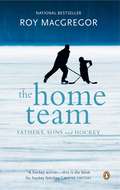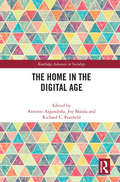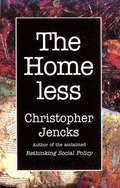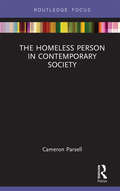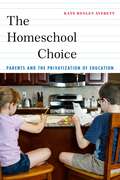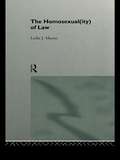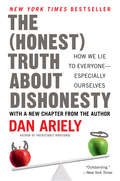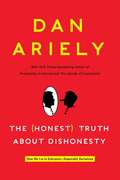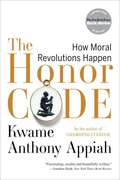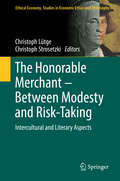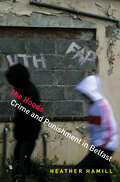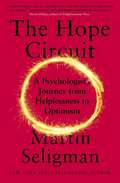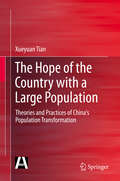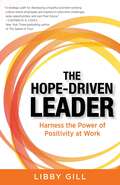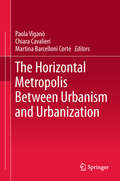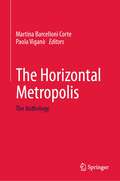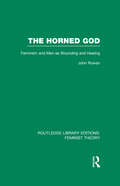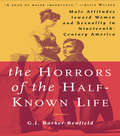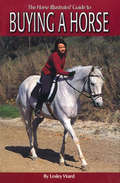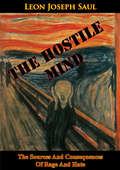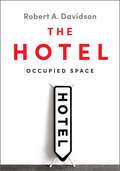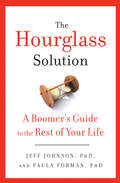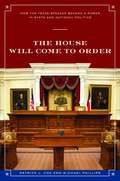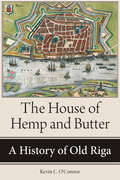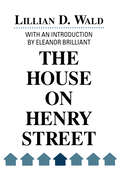- Table View
- List View
The Home Team
by Roy MacgregorShortlisted for the Governor General's Award"A truly magnificent book."--Calgary Herald It's the great Canadian icon: a frozen creek, a backyard rink, a father passing something precious on to his child--the love of a game. There is nothing quite so Canadian as hockey, and nothing quite so evocative in hockey as the relationships between Canadian hockey players and their fathers. Here are the personal tales of Wayne Gretzky, Mark Messier, Paul Coffey and Marty McSorley, told as the four NHL stars take their fathers on a hockey tour of Europe. Here are the memories of hockey's grand families: Gordie, Mark and Travis Howe; Bill, Kevin and Gord Dineen; Murray, Ken and Michael Dryden. Here is Brett Hull's story of the famous father who was never home. But The Home Team is about more than famous names. It is the story of the father and son left weeping in the stands at the end of a disappointing draft day. It is the story of a minor league coach and his house league son. This book is about hockey. It is also about where we live and who we are: a book for all fathers and sons in Canada.
The Home in the Digital Age (Routledge Advances in Sociology)
by Antonio ArgandoñaThe Home in the Digital Age is a set of multidisciplinary studies exploring the impact of digital technologies in the home, with a shift of emphasis from technology to the people living and using this in their homes.The book covers a wide variety of topics on the design, introduction and use of digital technologies in the home, combining the technological dimension with the cognitive, emotional, cultural and symbolic dimensions of the objects that incorporate digital technologies and project them onto people’s lives. It offers a coherent approach, that of the home, which gives unity to the discussion.Scholars of the home, the house and the family will find here the connection with the problems derived from the use of domestic robots and connected devices. Students of artificial intelligence, machine learning, robotics, big data and other branches of digital technologies will find ideas and arguments to apply their disciplines to the home and participate fruitfully in forums where digital technologies are built and negotiated in the home. Experts from various disciplines ・ psychologists and sociologists; philosophers, epistemologists and ethicists; economists; engineers, architects, urban planners and designers and so on ・ and also those interested in developing policies for the home and family will find this book contains well-founded and useful ideas to focus their work.
The Homeless
by Christopher JencksHow widespread is homelessness, how did it happen, and what can be done about it? These are the questions explored by Christopher Jencks, America's foremost analyst of social problems. Jencks examines the standard explanations and finds that the deinstitutionalization of the mentally ill, the invention of crack cocaine, rising joblessness among men, declining marriage rates, cuts in welfare benefits, and the destruction of skid row have all played a role. Changes in the housing market have had less impact than many claim, however, and real federal housing subsidies actually doubled during the 1980s. Not confining his mission to studying the homeless, Jencks proposes several practical approaches to helping the homeless.
The Homeless Person in Contemporary Society
by Cameron ParsellThe homeless person is thought to be different. Whereas we get to determine our difference or sameness, the homeless person’s difference is imposed upon them and assumed to be known because of their homelessness. Exclusion from housing – either a commodity that should be accessed from the market or social provision – signifies the homeless person’s incapacities and failure to function in what are presented as unproblematic social systems. Drawing on a program of research spanning ten years, this book provides an empirically grounded account of the lives and identities of people who are homeless. It illustrates that people with chronic experiences of homelessness have relatively predictable biographies characterised by exclusion, poverty, and trauma from early in life. Early experiences of exclusion continue to pervade the lives of people who are homeless in adulthood, yet they identify with family and normative values as a means of imaging aspirational futures.
The Homeschool Choice: Parents and the Privatization of Education (Critical Perspectives on Youth)
by Kate Henley AverettHonorable Mention, Sex & Gender Section Distinguished Book Award, given by the American Sociological AssociationThe surprising reasons parents are opting out of the public school system and homeschooling their kidsHomeschooling has skyrocketed in popularity in the United States: in 2019, a record-breaking 2.5 million children were being homeschooled. In The Homeschool Choice, Kate Henley Averett provides insight into this fascinating phenomenon, exploring the perspectives of parents who have chosen to homeschool their children. Drawing on in-depth interviews, Averett examines the reasons why these parents choose to homeschool, from those who disagree with sex education and LGBT content in schools, to others who want to protect their children’s sexual and gender identities. With eye-opening detail, she shows us how homeschooling is a trend being chosen by an increasingly diverse subset of American families, at times in order to empower—or constrain—children’s gender and sexuality. Ultimately, Averett explores how homeschooling, as a growing practice, has changed the roles that families, schools, and the state play in children’s lives. As teachers, parents, and policymakers debate the future of public education, The Homeschool Choice sheds light on the ongoing struggle over school choice.
The Homosexual(ity) of law
by Leslie MoranFirst published in 1996. Routledge is an imprint of Taylor & Francis, an informa company.
The Honest Truth About Dishonesty: How We Lie to Everyone--Especially Ourselves (Ebook Bundle Ser.)
by Dan ArielyThe New York Times bestselling author of Predictably Irrational and The Upside of Irrationality returns with thought-provoking work to challenge our preconceptions about dishonesty and urge us to take an honest look at ourselves. Does the chance of getting caught affect how likely we are to cheat?How do companies pave the way for dishonesty?Does collaboration make us more honest or less so?Does religion improve our honesty?Most of us think of ourselves as honest, but, in fact, we all cheat. From Washington to Wall Street, the classroom to the workplace, unethical behavior is everywhere. None of us is immune, whether its the white lie to head off trouble or padding our expense reports. In The (Honest) Truth About Dishonesty, award-winning, bestselling author Dan Ariely turns his unique insight and innovative research to the question of dishonesty. Generally, we assume that cheating, like most other decisions, is based on a rational cost-benefit analysis. But Ariely argues, and then demonstrates, that its actually the irrational forces that we dont take into account that often determine whether we behave ethically or not. For every Enron or political bribe, there are countless puffed resumes, hidden commissions, and knockoff purses. In The (Honest) Truth About Dishonesty, Ariely shows why some things are easier to lie about; how getting caught matters less than we think; and how business practices pave the way for unethical behavior, both intentionally and unintentionally. Ariely explores how unethical behavior works in the personal, professional, and political worlds, and how it affects all of us, even as we think of ourselves as having high moral standards. But all is not lost. Ariely also identifies what keeps us honest, pointing the way for achieving higher ethics in our everyday lives. With compelling personal and academic findings, The (Honest) Truth About Dishonesty will change the way we see ourselves, our actions, and others.
The Honest Truth about Dishonesty: How We Lie to Everyone - Especially Ourselves
by Dan ArielyDan Ariely, behavioral economist and the New York Times bestselling author of The Upside of Irrationality and Predictably Irrational, examines the contradictory forces that drive us to cheat and keep us honest, in this groundbreaking look at the way we behave: The (Honest) Truth About Dishonesty. From ticket-fixing in our police departments to test-score scandals in our schools, from our elected leaders' extra-marital affairs to the Ponzi schemes undermining our economy, cheating and dishonesty are ubiquitous parts of our national news cycle-and inescapable parts of the human condition. Drawing on original experiments and research, in the vein of Freakonomics, The Tipping Point, and Survival of the Sickest, Ariely reveals-honestly-what motivates these irrational, but entirely human, behaviors.
The Honor Code: How Moral Revolutions Happen
by Kwame Anthony AppiahA leading philosopher demonstrates the revolutionary power of honor in ending human suffering.
The Honorable Merchant – Between Modesty and Risk-Taking: Intercultural and Literary Aspects (Ethical Economy #56)
by Christoph Lütge Christoph StrosetzkiThis volume explores the concept of the honest merchant, taking a broad perspective and covering a wide range of aspects. It looks at the different types of “honest merchant” conceptions originating from different cultures and literary traditions. The book covers Japanese, Islamic, Scandinavian, Russian, German, Spanish, as well as other aspects, and studies different disciplinary backgrounds of the honest merchant, such as philosophical, economic, neuroethical, sociological and literary ones.The concept of the honest merchant has a long tradition in business ethics. In the Hanseatic League and in medieval Italy, the ideal of the honest businessman was taught since the late Middle Ages. It originated during a time when travelling merchants were often regarded with a sceptical eye. The honest merchants of their time however held clear principles in their business and took responsibility for their community. In later times, the religious notions of the concept lost their pivotal place to reason and morality. This book goes beyond the tradition of discussing business ethics in association with concepts from the Hanseatic League and medieval Italy, and puts the central concept of business ethics in a much greater perspective.
The Hoods: Crime and Punishment in Belfast
by Heather HamillA distinctive feature of the conflict in Northern Ireland over the past forty years has been the way Catholic and Protestant paramilitaries have policed their own communities. This has mainly involved the violent punishment of petty criminals involved in joyriding and other types of antisocial behavior. Between 1973 and 2007, more than 5,000 nonmilitary shootings and assaults were attributed to paramilitaries punishing their own people. But despite the risk of severe punishment, young petty offenders--known locally as "hoods"--continue to offend, creating a puzzle for the rational theory of criminal deterrence. Why do hoods behave in ways that invite violent punishment? In The Hoods, Heather Hamill explains why this informal system of policing and punishment developed and endured and why such harsh punishments as beatings, "kneecappings," and exile have not stopped hoods from offending. Drawing on a variety of sources, including interviews with perpetrators and victims of this violence, the book argues that the hoods' risky offending may amount to a game in which hoods gain prestige by displaying hard-to-fake signals of toughness to each other. Violent physical punishment feeds into this signaling game, increasing the hoods' status by proving that they have committed serious offenses and can "manfully" take punishment yet remained undeterred. A rare combination of frontline research and pioneering ideas, The Hoods has important implications for our fundamental understanding of crime and punishment.
The Hope Circuit: A Psychologist's Journey from Helplessness to Optimism
by Martin SeligmanOne of the most important psychologists alive today tells the story of the transformation of modern psychology through the lens of his own career and change of heart.Martin E. P. Seligman is one of the most decorated and popular psychologists of his generation. When he first encountered the discipline in the 1960s, it was devoted to eliminating misery: the science of how past trauma creates present symptoms. Today, thanks in large part to Seligman's own work pioneering the Positive Psychology movement, it is ever more focused on the bright side; gratitude, resilience, and hope.In this his memoir, Seligman recounts how he learned to study optimism; including a life-changing conversation with his five-year-old daughter. In wise, eloquent prose, Seligman tells the human stories behind some of his major findings. He recounts developing CAVE, an analytical tool that predicts election outcomes (with shocking accuracy) based on the language used in campaign speeches, and the canonical studies that birthed the theory of learned helplessness - which he now reveals was incorrect. And he writes at length for the first time about his own battles with depression at a young age.All the while, Seligman works out his theory of psychology, making a compelling and deeply personal case for the importance of virtues like hope, anticipation, gratitude, and wisdom for our mental health. You will walk away from this book not just educated but deeply enriched.
The Hope of the Country with a Large Population
by Xueyuan TianChina has the largest population in the world. However, according to the United Nations, India and China are expected to simultaneously reach a population of approximately 1. 38 billion by 2030, with India taking a slight lead. China will be all too happy to surrender its position as the country with the largest population. Where does this attitude come from? For China, this situation is symbolic of the solution to the excessive population and a milestone in the "Three-Stage" population development strategy, as well as the people's hope. In order to realize this hope, it firstly depends on the transformation from the previous high birth rate, high death rate, and low growth rate of population, to a high birth rate, low death rate, and high growth rate, and finally to a low birth rate, low death rate, and low growth rate. It also relies on the "post-demographic transition" to a low fertility level since the 1990s, and secondly, is closely related to the population change in the future. Therefore, in-depth studies on population and the development of population, resources, environment, economy, and society should be conducted on the basis of fresh experiences and theories from the international community, in order to move forward with the times to promote the solution to the population problem and realize the dream of rejuvenating the Chinese nation. As a result, population change is linked to this great rejuvenation, as the great rejuvenation requires the population change and, in turn, the population change facilitates the great rejuvenation.
The Hope-Driven Leader: Harness the Power of Positivity at Work
by Libby GillThe business and self-help shelves may be overflowing with success books, but author Libby Gill has found a totally fresh perspective on the topic of leadership: hope. "Libby Gill offers us a roadmap to be positive and hopeful for the future. This is a must-read for those of us ready to embrace true hope!" —Marshall Goldsmith, author of the #1 New York Times bestseller Triggers Zeroing in on what she sees as the defining issue of creating a more purposeful and productive workplace, Gill explains the science of hope theory, which is "the interconnection between beliefs and behaviors," and explores how it can shift mindsets from siloed to collaborative and productivity levels from sluggish to robust. The Hope-Driven Leader is not about feel-good theory or loaded with dry data. It's an accessible, multi-step action guide informed by the thousands of people Gill has coached in both the corporate and entrepreneurial worlds around the globe. It includes skill-building lessons based on research and illustrated by personal stories and case studies such as: • Enhancing leadership skills • Crafting a personal brand • Becoming an influencer • Managing global teams • Navigating high-impact conversations • Handling challenges specific to women leaders • And much more Whether you are a rising star or a seasoned leader in your own business, a corporation, or your community, The Hope-Driven Leader offers you a roadmap for instilling those positive beliefs and behaviors into the core of your being and the culture of your workplace. Let the journey begin! &“This is your action guide to smarter leadership, more effective teams, and bigger, better, faster results. Smart, generous, and impactful. Buy a copy for everyone on your team.&” —David Newman, CSP, author of Do It! Marketing
The Horizontal Metropolis Between Urbanism and Urbanization
by Paola Viganò Chiara Cavalieri Martina Barcelloni CorteThis book provides an overview of the Horizontal Metropolis concept, and of the theoretical, methodological and political implications for the interdisciplinary field in which it operates. The book investigates the contemporary emergence of a new type of extended urbanity across regions, territories and continents, up to the global scale. Further, it explores the diffusion of contemporary urban conditions in an interdisciplinary and original manner by analyzing essential case studies. Offering extensive content on the Horizontal Metropolis concept, the book presents a range of approaches intended to transcend various inherited spatial ontologies: urban/rural, town/country, city/non-city, and society/nature. The book is intended for all readers interested in the emergence and development of new approaches in cultural theory, urban and design education, landscape urbanism and geography.
The Horizontal Metropolis: The Anthology
by Paola Viganò Martina Barcelloni CorteThis book draws together classic and contemporary texts on the “Horizontal Metropolis” concept. Taking an interdisciplinary approach, it explores various theoretical, methodological and political implications of the Horizontal Metropolis hypothesis. Assembling a series of textual and cartographic interventions, this book explores those that supersede inherited spatial ontologies (urban/rural, town/country, city/non-city, society/nature). It investigates the emergence of a new type of extended urbanity across regions, territories and continents up to the global scale through the reconstruction of a fundamental but neglected tradition. This book responds to the radical nature of the changes underway today, calling for a rethinking of the Western Metropolis idea and form along with the emergence of new urban paradigms. The Horizontal Metropolis concept represents an ambitious attempt to offer new instruction to take on this challenge at the global scale. The book is intended for a wide audience interested in the emergence and development of new approaches in urbanism, architecture, cultural theory, urban and design education, landscape urbanism and geography.
The Horned God: Feminism and Men as Wounding and Healing (Routledge Library Editions: Feminist Theory)
by John RowanThis original and pioneering study of how men relate to feminism will appeal to all men who are concerned about their response to the women’s movement and to the women in their lives. It will also be helpful for women seeking a constructive response from men. John Rowan, drawing on his personal journey through feminism and on his considerable experience as a therapist, tackles the issues in a much deeper way than has been attempted before. For men to discover feminism is wounding for them. It can even make them despair about being men at all. But unless they accept that wound, nothing much will change. John Rowan shows that men have to heal that wound at a conscious social-political level, changing laws, practice and daily behaviour. They have to heal it at an unconscious level, through therapy, exploring their profound feelings about their mothers, their fathers and their own internal female nature. They also have to heal the wound at a spiritual-transpersonal level, exploring the world of the Goddess and the Horned God. Only then, says, John Rowan, can they start to have any real dialogue with women, and only then can the world begin to change for both men and women.
The Horrors of the Half-Known Life: Male Attitudes Toward Women and Sexuality in 19th. Century America
by G.J. Barker-BenfieldNow a classic in the field, The Horrors of the Half-Known Life is an important foundational text in the construction of masculinity, female identity, and the history of midwivery.
The Horse Illustrated Guide to Buying a Horse
by Lesley WardExperienced equestrians cover the fundamentals of horsemanshipt - from buying and caring for a horse to getting the most out of tiem in the saddle. Complete with step-by-step instructions, full-color photographs, and helpful glossaries, these trustworthy little guides help riders establish and maintain rewarding relationships with their horses.
The Hostile Mind: The Sources And Consequences Of Rage And Hate
by Leon Joseph SaulTHE PURPOSE of this book is to provide some basic psychiatric information about human hostility. It is also a call to the relevant sciences and to intelligent men and women everywhere to turn their attention to the world's most important and urgent danger: man's hostility to man, in the hope of helping to handle, control and alleviate the great suffering it creates.As this is written, the newspapers report that plans for a rocket trip to the moon are being discussed, that a scientist has devised a reasonable and practical way to travel to Mars and back. What was unthinkable yesterday becomes tomorrow's reality.The fact that great strides are daily being made in the understanding of human nature rarely makes headlines. But it is true that the dream of man maturing fully, living peacefully with his fellow men, and achieving his real nature of goodness and strength is now as much within our reach theoretically as is the dream of space travel. What makes criminals and great men, what makes the loftiest achievements of the human spirit and what makes the destruction, chaos and unutterable bestiality and misery of war--this is now known. To apply such knowledge is a vast and enormously difficult task in human engineering, but it is only a practical task. To show that this is so and to focus attention upon it is the goal of this book.
The Hotel: Occupied Space
by Robert A. Davidson<p>The Hotel: Occupied Space explores the hotel as both symbol and space through the concept of “occupancy.” By examining the various ways in which the hotel is manifested in art, photography, and film, this book offers a timely critique of a crucial modern space. <p>As a site of occupancy, the hotel has provided continued creative inspiration for artists from Monet and Hopper, to genre filmmakers like Hitchcock and Sofia Coppola. While the rich symbolic importance of the hotel means that the visual arts and cinema are especially fruitful, the hotel’s varied structural purposes, as well as its historical and political uses, also provide ample ground for new and timely discussion. In addition to inspiring painters, photographers, and filmmakers, the hotel has played an important role during wartime, and more recently as a site of accommodation for displaced people, whether they be detainees or refugees seeking sanctuary. Shedding light on the diverse ways that the hotel functions as a structure, Robert A. Davidson argues that the hotel is both a fundamental modern space and a constantly adaptable structure, dependent on the circumstances in which it appears and plays a part.</p>
The Hourglass Solution: A Boomer's Guide to the Rest of Your Life
by Jeff Johnson Paula FormanSeventy-five million baby boomers are finding themselves bound by habits and pursuits instigated many years ago-and for a large percentage of those boomers, significant aspects of their lives no longer satisfy. But by joining revolutionary insight to highly proprietary prescriptive advice, The Hourglass Solution provides a proactive and pragmatic way to lead a better life after 50. Johnson and Forman evaluate the life narrative through the lens of an hourglass-proposing that those in early adulthood are at the top of the hourglass, able to select from many options, while those in middle age are in the hourglass’s neck, constrained by the choices they made earlier in their lives. The Hourglass Solution explains how those approaching their fifties (and beyond) can still find a wealth of opportunity by recognizing and pursuing new directions, free from the restrictions imposed by an earlier choice. Like Gail Sheehy’s Passages before it, The Hourglass Solution will enlighten and inspire a generation of readers to regain control over their lives and well-being.
The House Will Come to Order
by Michael Phillips Patrick L. CoxIn a state assumed to have a constitutionally weak governor, the Speaker of the Texas House wields enormous power, with the ability to almost single-handedly dictate the legislative agenda. The House Will Come to Order charts the evolution of the Speaker’s role from a relatively obscure office to one of the most powerful in the state. This fascinating account, drawn from the Briscoe Center’s oral history project on the former Speakers, is the story of transition, modernization, and power struggles. Weaving a compelling story of scandal, service, and opportunity, Patrick Cox and Michael Phillips describe the divisions within the traditional Democratic Party, the ascendance of Republicans, and how Texas business, agriculture, and media shaped perceptions of officeholders. While the governor and lieutenant governor wielded their power, the authors show how the modern Texas House Speaker built an office of equal power as the state became more complex and diverse. The authors also explore how race, class, and gender affected this transition as they explain the importance of the office in Texas and the impact the state’s Speakers have had on national politics. At the apex of its power, the Texas House Speaker’s role at last receives the critical consideration it deserves.
The House of Hemp and Butter: A History of Old Riga (NIU Series in Slavic, East European, and Eurasian Studies)
by Kevin C. O'ConnorFounded as an ecclesiastical center, trading hub, and intended capital of a feudal state, Riga was Old Livonia's greatest city and its indispensable port. Because the city was situated in what was initially remote and inhospitable territory, surrounded by pagans and coveted by regional powers like Poland, Sweden, and Muscovy, it was also a fortress encased by a wall.The House of Hemp and Butter begins in the twelfth century with the arrival to the eastern Baltic of German priests, traders, and knights, who conquered and converted the indigenous tribes and assumed mastery over their lands. It ends in 1710 with an account of the greatest war Livonia had ever seen, one that was accompanied by mass starvation, a terrible epidemic, and a flood of nearly Biblical proportions that devastated the city and left its survivors in misery.Readers will learn about Riga's people—merchants and clerics, craftsmen and builders, porters and day laborers—about its structures and spaces, its internal conflicts and its unrelenting struggle to maintain its independence against outside threats. The House of Hemp and Butter is an indispensable guide to a quintessentially European city located in one of the continent's more remote corners.
The House on Henry Street
by Lillian D. WaldNearly one hundred years after the Henry Street Settlement was founded, this venerable institution still serves the people of the lower East Side of New York. Much of the credit for its survival may be attributed to its founder, Lillian Wald, who is also the author of this book.The House on Henry Street was written at the height of the Progressive Era, when economic prosperity and an expansive spirit were pervasive, but when poverty and misery were the lot of countless new immigrants and families in urban areas. This book is the story of the early years of the Settlement and of the personal involvement of Lillian Wald in the social reform activities of the Settlement and the Progressive movements. From the first it was considered a significant work, and was widely and favorably reviewed. It remains significant.The story of the Henry Street Settlement is part of the history of New York City, as well as a key moment in the growth of social work in the United States. It is integrally related to the story of progressivism and social reform. Although the book's style is simple, it tells a complex story, both of one woman's indomitable nature, and of a special institution in a particular neighborhood of New York City. The House on Henry Street reflects the spirit of an optimistic era in which actors were part of larger social and political changes. It is also a history that moves easily from the personal, through the community, and finally to the national levels of American government. Professionals in the fields of volunteerism and philanthropy, progressivism, women's studies, and social welfare will find this an absorbing document.
